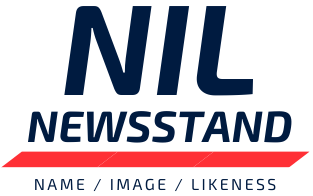Conferences Share New and Significant Progress Toward Implementation of House Settlement
Mar. 12, 2025 – Pending final court approval of the proposed settlement in the House v. NCAA, Hubbard v. NCAA and Carter v. NCAA cases (collectively, “the House case”), the Atlantic Coast Conference, Big Ten Conference, Big 12 Conference, Pac-12 Conference, Southeastern Conference and NCAA are rapidly preparing to implement a new model for the future of college sports focused on stability and fairness.
The proposed settlement would facilitate meaningful opportunities for student-athletes to further benefit from their participation in intercollegiate athletics, while establishing a robust system of oversight and controls to ensure fair competition and protect the integrity of collegiate athletics and the best interests of student-athletes, participating institutions and fans.
The opportunities resulting from the proposed settlement would be in addition to the myriad benefits currently provided to student-athletes, including free tuition, room and board, educational grants, academic support and tutoring, medical and mental health resources and support, nutrition resources and support, life skills development, superior coaching and training, and extended medical coverage after they stop competing.
Following the final hearing scheduled for April 7, and if the court gives final approval to the settlement, the responsibility for its implementation and enforcement will fall primarily to the five defendant conferences and the NCAA. To oversee this process, the conferences and NCAA have formed a Settlement Implementation Committee, made up of ten athletics directors (two from each defendant conference) and the legal and compliance teams from the conferences and the NCAA. The athletics directors on the Committee are:
Trev Alberts, Texas A&M
Scott Barnes, Oregon State
Mitch Barnhart, Kentucky
J Batt, Georgia Tech
Ross Bjork, Ohio State
Pat Chun, Washington
John Cunningham, Cincinnati
Graham Neff, Clemson
Anne McCoy, Washington State
Desireé Reed-Francois, Arizona
These athletics directors’ extensive experience makes them particularly well-suited to ensure that the rules, systems, and processes put in place to implement the settlement anticipate potential issues and are ultimately effective in bringing order to chaos amid the current realities of college sports. They are actively gathering input from their peers in their conferences and are channeling that feedback back to the group. The Committee has been meeting numerous times per week for the past several months, dedicating countless hours to discussing the settlement’s implementation and working diligently to ensure its short- and long-term success.
The Committee is divided into four working groups, each focused on a specific component of the settlement:
Drafting new and clarifying existing rules to facilitate consistent compliance with all aspects of the settlement;
Developing a digital platform for the reporting and measurement of payments made to student-athletes by their institutions to ensure compliance with the cap set forth in the proposed settlement;
Creating a system to ensure that third-party name, image and likeness (NIL) deals entered into with student-athletes are legitimate deals that will use the student- athlete’s NIL to advance a valid business purpose; and
Forming a new entity to enforce these rules with an emphasis on efficient investigative procedures, timely decision-making, appropriate penalties, and ensuring accountability for bad actors.
To execute these directives, the Committee has engaged industry-leading experts to assist institutions participating in the settlement with its implementation.
LBi Software has been retained to develop a cap management and reporting platform that ensures accurate tracking, reporting and enforcement of rules related to direct payments from institutions to student-athletes. With extensive experience building and managing similar systems for the MLB, NWSL, NBA, and other leagues, LBi brings proven expertise to this transformative effort. LBi has already completed initial testing of the platform and will engage with institutions directly to roll out the new software.
The Committee has also been working closely with Deloitte* to create a system to track and evaluate all Division I student-athletes’ third-party NIL deals valued at $600 and more, which would be required to be reported under the proposed settlement. The new enforcement entity will use the system to help it evaluate whether these deals are within a reasonable range of compensation and made with the purpose of using a student-athlete’s NIL to advance a valid business purpose, as outlined in the proposed settlement. Deloitte has made significant progress in designing and testing the technology, incorporating feedback from student-athletes and on-campus personnel, in anticipation of a phased roll out of the system to all Division I student-athletes upon the final approval of the settlement.
If the settlement is approved, the Committee and members of the new enforcement entity, alongside Deloitte and LBi, will launch robust educational efforts to ensure that coaches, student-athletes, administrators and relevant third parties all fully understand the new model and are prepared to comply with the new rules and leverage these new opportunities.
MEDIA CONTACT
Liz Breen
501-580-0181
* As used in this document, “Deloitte” means Deloitte Consulting LLP, a subsidiary of Deloitte LLP. Please see www.deloitte.com/us/about for a detailed description of our legal structure. Certain services may not be available to attest clients under the rules and regulations of public accounting.


